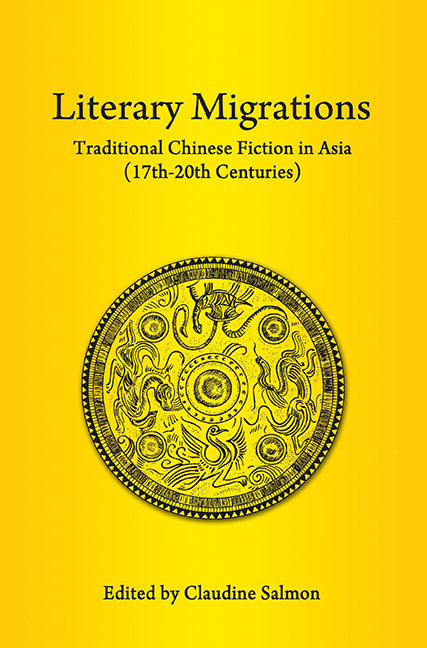Book contents
- Frontmatter
- Contents
- FOREWORD
- Dr Salmon as I Know her
- Preface to Reprint Edition
- Acknowledgements
- INTRODUCTION
- PART I KOREA AND JAPAN
- PART II MAINLAND NORTHEAST ASIA
- PART III MAINLAND SOUTHEAST ASIA
- PART IV INSULAR SOUTHEAST ASIA
- Bibliography
- Author, story-teller and translator index
- Title index
- List of Plates
- Contributors
- Plate section
Preface to Reprint Edition
Published online by Cambridge University Press: 21 October 2015
- Frontmatter
- Contents
- FOREWORD
- Dr Salmon as I Know her
- Preface to Reprint Edition
- Acknowledgements
- INTRODUCTION
- PART I KOREA AND JAPAN
- PART II MAINLAND NORTHEAST ASIA
- PART III MAINLAND SOUTHEAST ASIA
- PART IV INSULAR SOUTHEAST ASIA
- Bibliography
- Author, story-teller and translator index
- Title index
- List of Plates
- Contributors
- Plate section
Summary
This book was written between 1981 and 1986, it was first published in 1987, and it has been out of print since. The Chinese version of it by Yan Bao et al., Zhongguo chuantong xiaoshuo zai yazhou, which was also published in Beijing by the International Publishing House in 1989, is equally out of print. Since then more works especially in Chinese, Japanese, Korean, and Western languages have appeared which are mainly concerned with cultural exchanges between China and the countries of East Asia.
Moreover a new interest has arisen among scholars from various countries on what has been termed “Asian Translation traditions” and conferences are regularly organized on this topic. The first, on a very limited scope, was held at the SOAS in London in 2004, and gave rise to the publication of a collective book (Eva Hung and Judy Wakabayashi eds., Asian Translation Traditions, Manchester, St. Jerome Publ., 2005, 287 pp.) Since then three other conferences were held: the second in Baroda (2005), the third in Istanbul (2008), the fourth jointly organized by the Research Centre for Translation, The Chinese University of Hong Kong and the College of Humanities, Arts, and Social Sciences, Nanyang Technological University, Singapore, in Hong Kong (2010). The next to come, in 2012, will be organized by and held at the American University of Sharjah (AUS), the United Arab Emirates (UAE).
The Research Centre for Translation (RCT), a research unit at the Institute of Chinese Studies, Chinese University of Hong Kong (CUHK), established in 1971, which aims to promote Chinese literature through English translation works and to foster pioneering research in translation studies, has recently shown an interest for the history of literary translations in Asia. It has just launched a new annual journal entitled Fanyishi yanjiu “Studies in Translation History”, which is edited by the RCT and published and distributed by Fudan University Press, Shanghai. This is currently the only journal in Chinese to focus on the study of translation history. It is under the joint editorship of Lawrence Wang Chi Wong, RCT and of Uganda Sze Pui Kwan from the Department of Chinese Studies, Nanyang Technological University, Singapore.
- Type
- Chapter
- Information
- Literary MigrationsTraditional Chinese Fiction in Asia (17th–20th Centuries), pp. xxi - xxiiPublisher: ISEAS–Yusof Ishak InstitutePrint publication year: 2013

